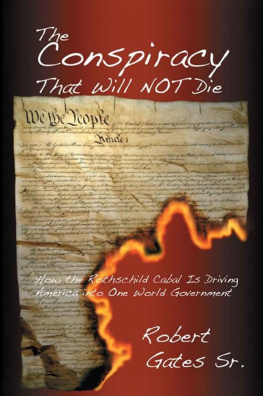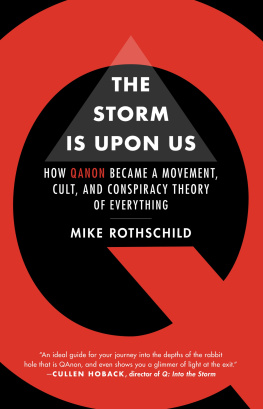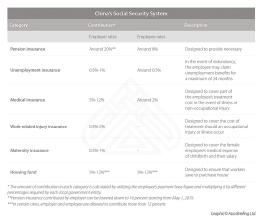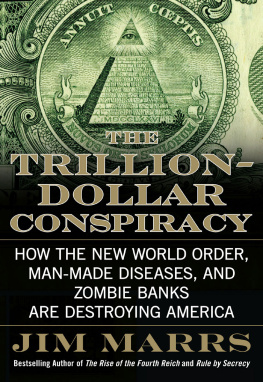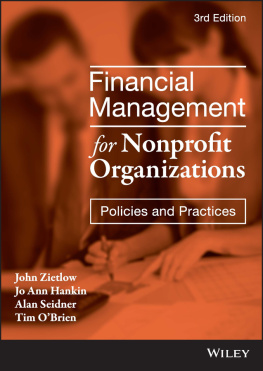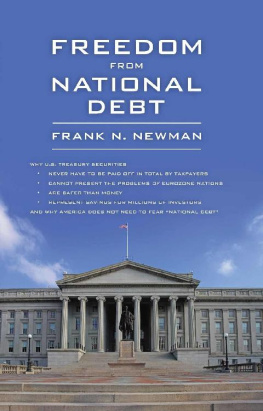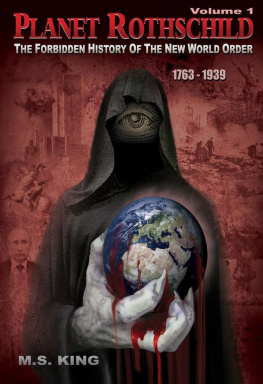The Conspiracy That Will Not Die
How the Rothschild Cabal Is Driving America into One World Government
Copyright 2011 Robert Gates, Sr.
CONTENTS
Chapter 1 In The Beginning
Chapter 2 Accidental or Conspiracy Theory
Chapter 3 Collectivism vs Liberalism
Chapter 4 CommunismThe Vehicle to One World Government
Chapter 5 Freemasonry and The Iluminati
Chapter 6 The Bilderberg/One-World Groups
Chapter 7 Cecil Rhodes and The Round Table
Chapter 8 Council On Foreign Relations
Chapter 9 The Church Commission Investigation
Chapter 10 Crimes and Misdemeanors by the U. S. Government
Chapter 11 Former President Clintons Impeachment Fiasco and Other Deviations
Chapter 12 Inept Congress Illegal Immigration
Chapter 13 USAAn Amoral Society
Chapter 14 Surrendering U.S. Sovereignty To The United Nations
Chapter 15 Restoring Our Constitution
Appendix A Bilderberg Members
Appendix B Progressive Caucus
Appendix C CFR Members in Government
References
I now make it my earnest prayer, that God would have the United States in his holy protection, that he would incline the hearts of the Citizens to cultivate a spirit of subordination and obedience to Government, to entertain a brotherly affection and love for one another, for their fellow Citizens of the United States at large, and particularly for their brethren who have served in the Field, and finally, that he would most graciously be pleased to dispose us all, to do Justice, to love mercy, and to demean ourselves with that Charity, humility, and pacific temper of mind, which were the Characteristics of the Divine Author of our blessed Religion, and without an humble imitation of whose example in these things, we can never hope to be a happy Nation. The above prayer by General Washington was written at Valley Forge during one of the worst winters ever seen by the new settlers.
General Washingtons Prayer at Valley Forge.
The story of Valley Forge is a story that should be taught again and again to the children of this country. It will instill in them the true meaning of the words Freedom and Liberty.
Chapter 1
IN THE BEGINNING
At the beginning of the Revolutionary War, the British were contemptuous of the Colonial settlers. A British commander sent home a short report that was read in the House of Commons. The gist of it was: The Americans will not stand and fight. They were jack-in-the-box guerrillas who would fight like devils for a day and a night and then go home and harvest their crops on the weekend. They would return, not always in any discernible formation, and after a swift onslaught vanish into the country by night, and then again at some unpredictable time come whizzing in like hornets. What baffled and eventually broke the British was what broke the Roman armies in their later campaigns against the barbarians, and for so long frustrated the American army in Vietnam. Edward Gibbon said it in a single passage: All things became adverse to the Romans ... their armor heavy, the waters deep; nor could they wield, in that uneasy situation, their weighty javelins. The barbarians, on the contrary, were inured to encounters in the bogs. Or as William Pitt sadly commented, looking at his drawn battle-lines on an alien wilderness: You cannot conquer a map.
The story of General Washington and his men at Valley Forge not only proved the British wrong about their courage but it showed what the colonial men thought about duty and honor. The life of the Father of our country briefly describes the concept of honor and duty. It describes the days when a mans word meant more than a sworn statement on a piece of paper.
Left fatherless at the age of eleven, Washington was shunted between two half- brothers and picked up a little irregular schooling in the intervals of learning how to raise tobacco and stock and manage a plantation. He took to surveying in boyhood and decided that it was to be his profession. One that in those days sent a man roving for weeks on end, improvising his sleeping quarters, shooting wild turkey and chewing it on the bone.
In the French and Indian Wars, he had suffered the horrors of Braddocks rout. He had horses shot from under him and went home to Virginia with a local reputation for being at all times unflappable. Then his health failed him, and he resigned his commission.
At the age of twenty-seven he married a very rich widow and settled on a majestic stretch of land, at Mount Vernon overlooking the Potomac. His wife had brought him a pleasant dowry of some profitable real estate, fifteen thousand acres near Williamsburgwhat by todays exchange would be about quarter of a million dollar--and one hundred and fifty slaves, whose condition, he confessed, embarrassed him. But he was an eighteenth-century man, and emancipation was a remote and strange doctrine. He assumed he would live out his life as a rich Virginia planter, but then, at the age of forty-three, he received the call.
Most Americans would today be upset by his air of a prosperous idle landowner and real estate operator in the guise of a down-the-nose British colonel. His most ardent biographers have been unable to find much evidence of charm, or even humor, in him. He was massively self-sufficient, and he had decided ideas about the relations of rank and rank, class and class. He did not, for instance, liked to be touched and when he became the first President he laid down a rule that people coming to see him should remain standing in his presence. He arrived for his inauguration with a flourish of grandeur and he shook no hands. Thomas Jefferson was greatly offended by this action at this ceremony and thought it not at all in character with the simplicity of republican governments, and lookingas if wishfully to those of European courts. As he took the oath, an official whispered to his neighbor: I fear we may have exchanged George the Third for George the First.
Yet there were things about him that made him the unques-tioned leader of the new nation. A pervasive sense of responsibility, an unflagging impression of shrewd judgment, and total integrity. It can best be summed up in what the drama critics call presence. But it was nothing rehearsed. It was the presence of nothing but character.
The war was only eighteen months old when it seemed that all was lost. The British captured Philadelphia, and many of the Congress took to the hillsand with good reason. King George had decree that all rebels would be hung for treason. The rebels were a frightened and divided body of mendivided between genuine revolutionaries and sunshine patriots, between dedi-cated colonial statesmen and secret Loyalists, and a clutter of money grubbers selling arms or commission or merchants whose anxious interest was to see that Spain got the lands beyond the Appalachians so that trade would not go West. The word got to a delirious London that Washington was trapped in a frigid valley, and that the war was over. The first part was correctbut not the second.
In the bleakest winter, of 1777-1778, Washington was camped in Valley Forge, about twenty miles northwest of Philadelphia. He picked it for obvious military advantages. It lay between a creek and a broad river, and the hills were high enough to survey the main supply routes from the South into New England and the roads from Philadelphia that led to the gunneries and powder mills of the interior. He refused to go inland and leave the fertile Pennsylvania farming country as a granary for the enemy. He refused also to commandeer the villages, which hadnt enough food for the swarms of refugees from Philadelphia. So he chose this bare place, and his eleven thousand men built their cabins with timber from the neighboring woods.
In the beginning life was bearable, even agreeable. The men were snug; Washington moved into a solid farmhouse. Mrs. Washington came to stay, so did some of the officers wives. There were cheerful dinner parties and no lack of food and wine. But the party was short-lived. The winter snows came early, and by January there were oceans of mud. Congress wouldnt, or couldnt, commission supplies and told Washington to plunder the nearest farmers, which he refused to do. When the main stores ran low, the men started to forage for hickory nuts and the more edible local fauna. By Marchwhen the countryside was blasted by blizzardsa third of them were down with typhus or smallpox and, of course, dysentery.

